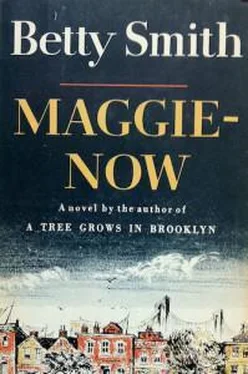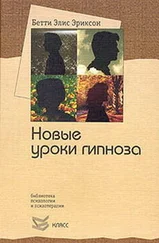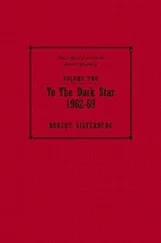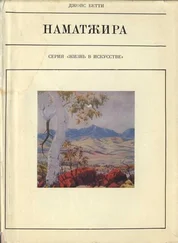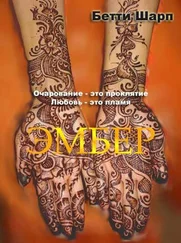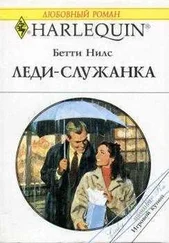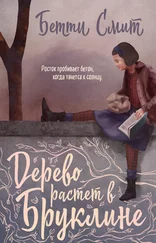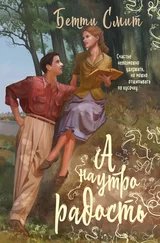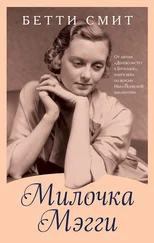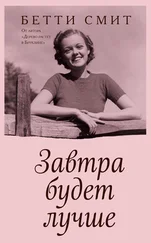Бетти Смит - Maggie-Now
Здесь есть возможность читать онлайн «Бетти Смит - Maggie-Now» весь текст электронной книги совершенно бесплатно (целиком полную версию без сокращений). В некоторых случаях можно слушать аудио, скачать через торрент в формате fb2 и присутствует краткое содержание. Жанр: Проза, на английском языке. Описание произведения, (предисловие) а так же отзывы посетителей доступны на портале библиотеки ЛибКат.
- Название:Maggie-Now
- Автор:
- Жанр:
- Год:неизвестен
- ISBN:нет данных
- Рейтинг книги:3 / 5. Голосов: 1
-
Избранное:Добавить в избранное
- Отзывы:
-
Ваша оценка:
- 60
- 1
- 2
- 3
- 4
- 5
Maggie-Now: краткое содержание, описание и аннотация
Предлагаем к чтению аннотацию, описание, краткое содержание или предисловие (зависит от того, что написал сам автор книги «Maggie-Now»). Если вы не нашли необходимую информацию о книге — напишите в комментариях, мы постараемся отыскать её.
Maggie-Now — читать онлайн бесплатно полную книгу (весь текст) целиком
Ниже представлен текст книги, разбитый по страницам. Система сохранения места последней прочитанной страницы, позволяет с удобством читать онлайн бесплатно книгу «Maggie-Now», без необходимости каждый раз заново искать на чём Вы остановились. Поставьте закладку, и сможете в любой момент перейти на страницу, на которой закончили чтение.
Интервал:
Закладка:
BETTY SMITH
MAGGIE-NOW
Copyright C) 1958 by Betty Smith Printed in the United Stares of Amercia All rights in this book are reserved.
No part of the book may be used or reproduced in any manner whatsoever without written per mission except in the case of brief quotations embodied in critical articles and reviews. For information address Harper & Brothers 49 East 33rd Street, Ncw York 16, N. Y.
CHAPTER ONE
YOUNG Patrick Dennis Moore wore the tightest pants in all of County Kilkenny. I le W;iS the only boy-o in the village who cleaned his fingernails; and his thick, black, shiny hair had the widest, cleanest part in all of Ireland or so it was said.
He lived with his mother. He was the last of a brood of thirteen. Three had died, four had married. Three had been put in an orphan home when the father died, and had been adopted or bound out to farmers and never been heard from again. One had gone to Australia;
another to Dublin. The Dublin one had married a Protestant girl and changed his name to Morton. Patrick Dennis was the only one left with his mother.
And how she clung to her last baby Patsy Denny, she called him. In her young days, sue had had her babies like kittens. She nursed them at her huge breasts, wiped their noses on her petticoat, cuffed them, hugged them and fretted when they toddled away from her skirts. But when they grew older and stopped being utterly dependent on her for life itself, she lost interest in them.
Patsy Denny vvas a charge-of-life baby. She was in her middle forties when he came along. (His father died four months before Patsy was born.) She had been awed and surprised when she found herself "that way" with him, having thought surely she was too old to have another child. She held his birth to be a holy miracle. Believing he was a special dispensation from heaven, and realizing he was the last child she'd ever bear, she flowed over with maternal love and gave him all she had denied her other children.
She called him her "eye apple." She did not ask that he worli and support her. She worked for 13iin. All she asked v as that he be. All she wanted was to have him with her for always to look her fill at him and to cater to his creature comforts.
She was the one who convinced him (and he wasn't hard to convince) that he was above common labor. Was he not the talented one? Sure! Why, he could dance a jig, keeping his body rigid as he jumped into r he air, no matter what intricate figures his feet beat out.
He had a friend known as Rory-Boy. T he friend had a fiddle. Patsy and Rory-Boy entertained at the public houses. Rory-Bov banged his bow on the fiddle strings and wild, incoherent music came out to which Patsy pranced, jogged and leaped. Sometimes someone threw a copper. Patsy's share didn't come to much just enough to keep him supplied with the lurid-colored handkerchiefs which he liked to wear around his neck and knotted under his left ear.
What was there said about Patrick Dennis in the village? Much that was bad and little that was good except that he was sweet to his mother. And so he was. He loved her and treated her as though she were a girl he was forever courting.
Sure, he had a sweetheart. She was seventeen. She was a pretty thing with black hair and azure eyes with charcoal-black lashes. She was walking proof of the legend that sometimes God's fingers were smudgy when He put in the eyes of an Irish girl baby. She lived with her widowed mother and her name was Maggie Rose Shawn.
She was beautiful, she was poor. And mothers of marriageable sons warned them against Maggie Rose.
"And what would she be bringing to a marriage except her beautiful self? And it's soon enough the bloom would leave that rose when the man would have to take the mother with the daughter for the Widow Shawn is not one to live apart from her only daughter.
"No. The Widow's only son won't take the old lady.
Sure now, he's a constable in Brooklyn, America, and it's grand wages he makes. And it's the constable's wife, herself, with her American ways, who looks down on her man's mother and his sister. Or so 'tis said.
"No, my son, there is others to marry. C)ur l.ord put more
~ ~1
women than men in this world, especially in this village where the young men leave almost as soon as they're weaned, to get work and to lead the wild life in Dublin or some other strange part of the world and leave the village girls behind."
The boys listened but looked on Maggie Rose with desire, and many there were who thought the care and support of her clinging mother was a cheap price to pay for such a darling of a girl.
But Maggie Rose would have none of their intentions.
Patrick Dennis was dear one. He was the one; the only one.
Lizzie Moore was not too concerned when her eye apple of a son started walking out with Maggie Rose Shawn. She knew she had a strong mother-hold on her son.
"Why would he marry," she said, "and play second fiddle to the girl and third to the Widow and him a king alone in me cottage? "
She was sure, too, that Patsy was too lazy and selfish and too scared of hard work to marry a poor girl.
"And what can the girl bring to marriage with a honest boy-o? No bit of land, no sow, no cow, no bag of cloth with a few pieces of gold in it. Nothing! Nothing but a keening mother and a handful of picture postal cards from her brother, the constable in Brooklyn."
She gave out ugly rumors about the girl. "Marry, you say? And why should me last son marry the likes of her?
A man marries for the one thing when he can't have it no other way. But ah, me boy-o don't have to go to the trouble of marrying for that the way he is good looking and all."
Patrick Dennis and Maggie Rose were together day and night except when he ate with his mother or performed in the taverns with Rory-l'.oy. Soon, all of Maggie Rose's other suitors gave way. There was talk.
"The shame of it. ."
"'Tis against nature. ."
"A healthy boy-o and a beautiful girl together all the time, it follows that. ."
So spoke the drink nursers in the taverns. The village biddies, arms folded and lips stern, nodded knowingly as they agreed that if the couple were not- married, sure and they should be.
F31 None of these thinners were true. Maggie Rose was a good, decent, churchgoing girl. But the talk came to her mother in time and Mrs. Shawn invited Patrick over for supper and had it out with him.
"Sonny lad," she saicl, "I will talk to vou ahoutmarrying.7, "I'm a-willing," said Patrick.
"To marry?"
"To talk."
"And aren't you the one for talking. And making talk, too the way they talk about me only daughter and all the fault of you and your ways with her."
"I'll thrash any mail what speaks against Maggie Rose no matter how big he be's. ' "You'll have to be thrashing most of the women of the parish too, then." She gave him the question point-hlank.
"Now when will you be marrying me daughter?"
Patrick felt trapped and frightened. He wanted to run away and never see either of them again. Not that he didn't care for Maggie Rose. He did. But he didn't want to be gunned into marriage. His gift of gab came to his aid.
"Would I not be the proudest man in the world could I
marry.N,laggie Rose and she willing? Btlt I made a great promise to me old mother: never to marry the while she lived. For who else does she have in all the world? Only meself poor thing that I am." He appealed directly to Maggie Rose. "You would not be wanting a man what W.15 cruel to his mother, would you now?"
Dumbly, and with eyes cast down, she shook her head "No."
"Is it not so that a son what is bad to his mother," he said, "is had to his wife? Ah, nothing but bad cess would come of it. Think on the poor children what would be born to us and them blind and crippled our Lord's punishment was I to destroy me promise to me poor old lady." He wiped an eye with a corner of the magenta hanc3kerchief knotted under his left ear.
Читать дальшеИнтервал:
Закладка:
Похожие книги на «Maggie-Now»
Представляем Вашему вниманию похожие книги на «Maggie-Now» списком для выбора. Мы отобрали схожую по названию и смыслу литературу в надежде предоставить читателям больше вариантов отыскать новые, интересные, ещё непрочитанные произведения.
Обсуждение, отзывы о книге «Maggie-Now» и просто собственные мнения читателей. Оставьте ваши комментарии, напишите, что Вы думаете о произведении, его смысле или главных героях. Укажите что конкретно понравилось, а что нет, и почему Вы так считаете.
